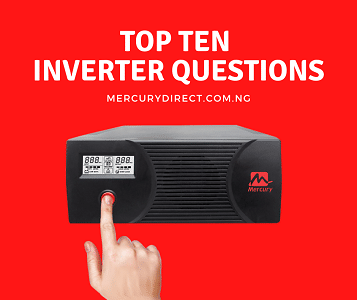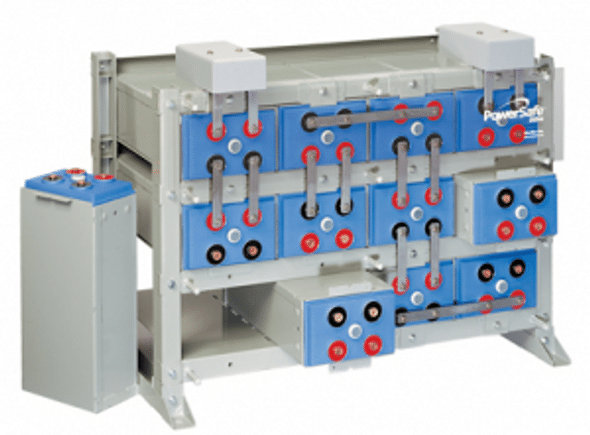The Top 10 Things You Need to Know Before Buying Your Inverter!

Looking to purchase an inverter but feeling overwhelmed by the multitude of options out there? Don’t worry -we’ve got you covered! Before you dive in headfirst, let’s take a look at the top 10 things you need to know before buying your inverter.
1. What is an inverter?
First up, let’s define what an inverter actually is. Essentially, it’s a nifty little electronic device that converts DC (direct current) to AC (alternating current) power. This is crucial because most electrical devices and appliances run on AC power.
Pair your inverter with deep cycle batteries and green energy solutions like solar panels, and you’ve got yourself a powerful tool for generating backup power during outages or serving as an alternative power source. Plus, the use of inverters can lead to significant reductions in your electricity expenses, making them a cost-effective and eco-friendly choice for your energy needs.
2. Types of inverters
Before buying your inverter, you need to be aware of the types of inverters available – there are two main options: pure sine wave inverters and modified sine wave inverters. While pure sine wave inverters may be pricier, they produce a cleaner and more stable AC output.
On the other hand, modified sine wave inverters are cheaper and great for powering basic home appliances like lights, TV, fans, and laptops, but are not recommended for larger appliances with compressors such as fridges and ACs.
3. Inverter capacity
When it comes to choosing the right inverter, capacity is key. Measured in watts, this indicates the maximum amount of power that the inverter can supply. It’s crucial to choose an inverter with enough capacity to handle the power needs of the devices you want to use.
However, before you rush out to buy the biggest and most powerful inverter you can find, it’s important to take a step back and consider your actual power needs. In order to keep costs and complexity down, it’s advisable to only run your essential appliances on the inverter.
While it’s certainly possible to power your entire house with an inverter, you’ll need to take into account the size of the battery bank required to do so (for long bank up time), as well as the total cost of ownership.
4. Battery bank

When it comes to using an inverter, most models require a trusty battery bank to operate. This battery bank stores the DC power that the inverter then converts to AC power – pretty nifty, right? But here’s the kicker: you need to choose a battery bank with enough capacity to power your devices for the desired amount of time.
So, how do you figure out how long your battery bank will last in the event of a power failure? Simple – just use the Mercury Battery Calculator. For instance, let’s say your total load is 300 watts and you have 2 x 200ah deep cycle batteries. In this case, your backup time will be roughly 10 hours at an 80% depth of discharge. If your load is a bit lighter at 150 watts, you can expect a backup time of around 20 hours at an 80% depth of discharge.
Now, for optimal performance, it’s advisable not to discharge your batteries beyond 50%. However, we understand that this can be difficult to achieve in countries like Nigeria where there is little or no regular power supply from the grid. Nonetheless, you should never discharge your batteries completely – it will significantly reduce its lifespan.
5. Efficiency
Efficiency is another important factor to consider when choosing an inverter. The efficiency rating indicates how much of the DC power from the battery bank is converted into AC power. Higher efficiency means less power is lost during the conversion process.
6. DC voltage
The dc voltage is also critical – this indicates the range of DC voltage that the inverter can accept from the battery bank. Make sure you choose an inverter with an input voltage range that matches your battery bank.
7. AC voltage
When it comes to ac voltage, most inverters produce 230VAC at 50Hz, which is the standard in Nigeria.
8. Inverter installation
Inverters should be installed by a professional electrician or someone with experience in electrical work. Proper installation is critical for safety and optimal performance.
9. Inverter maintenance
Maintenance is also key to ensuring your inverter performs at its best for years to come. This includes cleaning the inverter, checking connections, and monitoring battery health.
10. Safety
Inverters can be dangerous if not used properly. Always follow the manufacturer’s instructions and safety guidelines when installing and using an inverter. Keep children and pets away from the inverter and battery bank.
Some of the best inverter brands to consider in Nigeria include Mercury Inverters and Huawei Inverters. Both brands have a good reputation for quality and reliability. When considering the best inverter in Nigeria to buy, it’s important to compare features and prices to find the one that best meets your needs and budget.
In conclusion, finding the best inverter to buy in Nigeria requires careful consideration of several factors, including capacity, efficiency, type of inverter, battery bank, input voltage range, output voltage and frequency, brand reputation, warranty, installation, and maintenance. By considering these factors, you can make an informed decision and choose the best inverter for your needs.
Are you in need of reliable and efficient power solutions for your home or business? Look no further than Mercury Direct! With top-of-the-line inverters and batteries, our products are designed to keep you powered up no matter what.
Ready to experience the benefits of uninterrupted power? Contact us today at 07037451701 or email support@mercurydirect.com.ng to get started. Our team of experts are standing by to answer any questions you may have and help you find the perfect solution for your needs.
Don’t wait any longer to take control of your power needs. Contact Mercury Direct today and start experiencing the power of reliability!

where is your office located in ibadan or OSUN STATE my email address is ajewolemic@gmail.com